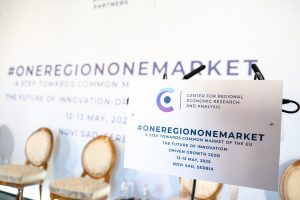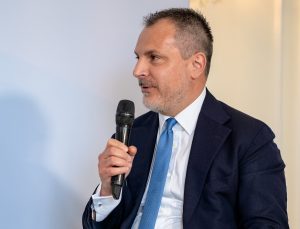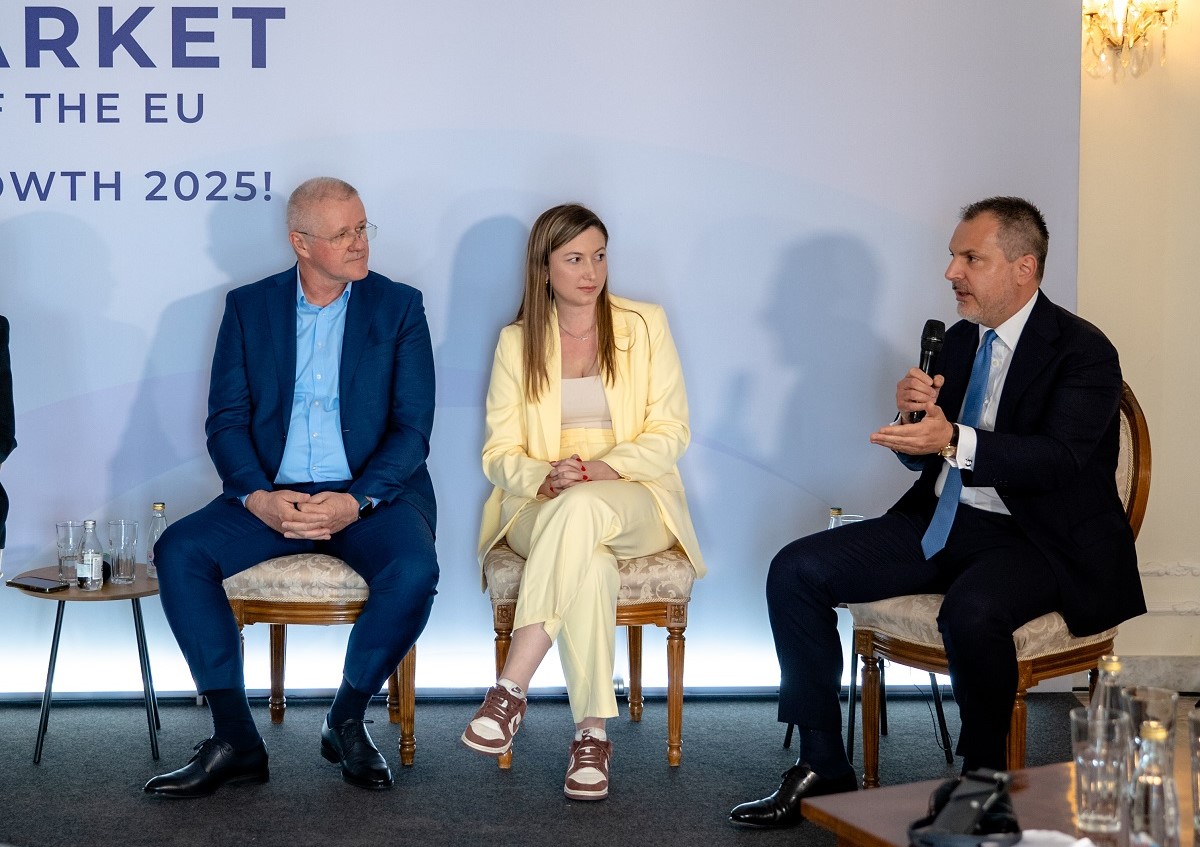The two-day 9th Regional Conference #OneRegionOneMarket – A Step Towards a Common EU Market was held on May 12 and 13 in Novi Sad. This year, the Conference was held under the name “FUTURE OF GROWTH DRIVEN BY INNOVATION 2025!”

The regionals conference gathered business leaders from the region, entrepreneurs, investors, owners and executives of leading regional companies, as well as managers of the most successful small and medium-sized enterprises operating throughout the Western Balkans. The goal was that business leaders are heard by policymakers and decision-makers, as they, the entrepreneurs and business leaders, are the ones facing the consequences of these policies.

The Chairman of the Executive board of DDOR, Francesco Masci, spoke at the second plenary session titled “Attracting Investments in Innovative Products and Ecosystems” about the contribution of insurance to the development of products and services:
“Too often in business there is a general tendency to downplay, to a large extent, how consequential productivity, cutting red tape, generation of value and safeguarding and creation of jobs are. It is glaringly evident that size really matters, and despite the fact that the Serbian market still has a significant scope for further growth, the reality is that the scale remains limited and this will ultimately thwart all those investments which are necessary to generate attractive returns which, on the one hand, can be used to remunerate invested capital and the shareholders, and on the other can be further deployed in the local economy and trigger a virtuous economic cycle. In addition, the economy currently significantly benefits from the infrastructural investments which are propelling growth, but that can’t keep this pace forever. As a consequence, to my mind, it is critical to craft specific growth-driven economic policies that can unlock the untapped potential underlying the development of the retail and of the SME business which are the centrepieces of more advanced economies. For instance, think of climate-related disasters which have caused more than $3.6tn in economic damage since 2000, of which $1tn from 2020 to 2024, and climate inaction could severely harm the world economy; the case for investing in the resilience of the buildings and in adaptation, upgrading the building codes, is strengthened by the returns generated which range from $2 to $19 for every dollar invested. Therefore, I encourage a stronger partnership between the public and the private sector, in order to develop policy solutions, alleviate the impact of natural hazards, encourage positive change in the insurability of assets and infrastructures and make insurance available and affordable.
In conclusion, a bigger market means more innovation and greater competitiveness, capability of attracting foreign capital and supporting domestic investments, faster growth and larger wealth generation over time, resulting in a substantial development of the insurance industry which remains one of the main pillars of the economy.
Human capital is even more important than technological progress and will play a catalytic role in laying the groundwork for the further development of the country and of the economy. And here it comes the time to flip the conventional narrative – seriously flawed – about the insurance sector as a boring and old-fashioned business, which is the result of poor literacy and storytelling. It is an established fact that the industry is weathering a large-scale transformation, and there is now need of data scientists, data engineers, geologists, profiles of all stripes which will help the industry reshape the business.
In addition, back in March 2025 Unipol Group unveiled the next three-year Strategic Plan named “Stronger|Faster|Better”, which is centered on many technological innovations, especially regarding the offering, although it is paramount to stress that technology and generative AI, on the one hand will change substantially the way insurance companies operate, innovate and compete throughout the entire value chain, on the other technology and generative AI do not replace human capital, but they rather sharpen and empower the ability of the colleagues to deliver, and this is how Unipol and DDOR will continue exploring the opportunity to apply technology and AI into the business.”
On behalf of the organizers, the Conference Chairman Aleksandar Simurdić concluded that it is essential to establish closer cooperation in the Western Balkans, create new opportunities for greater networking among business communities within the region, and remove barriers to regional economic integration as well as the establishment of a common regional market.
